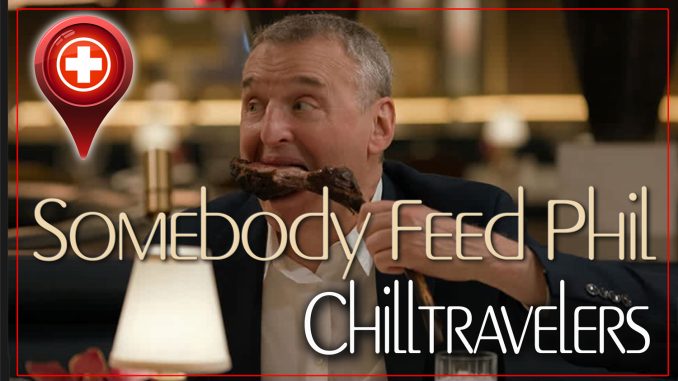
Breaking Bread, Breaking Barriers: How ‘Somebody Feed Phil’ Proves Food Unites Us Beyond Politics
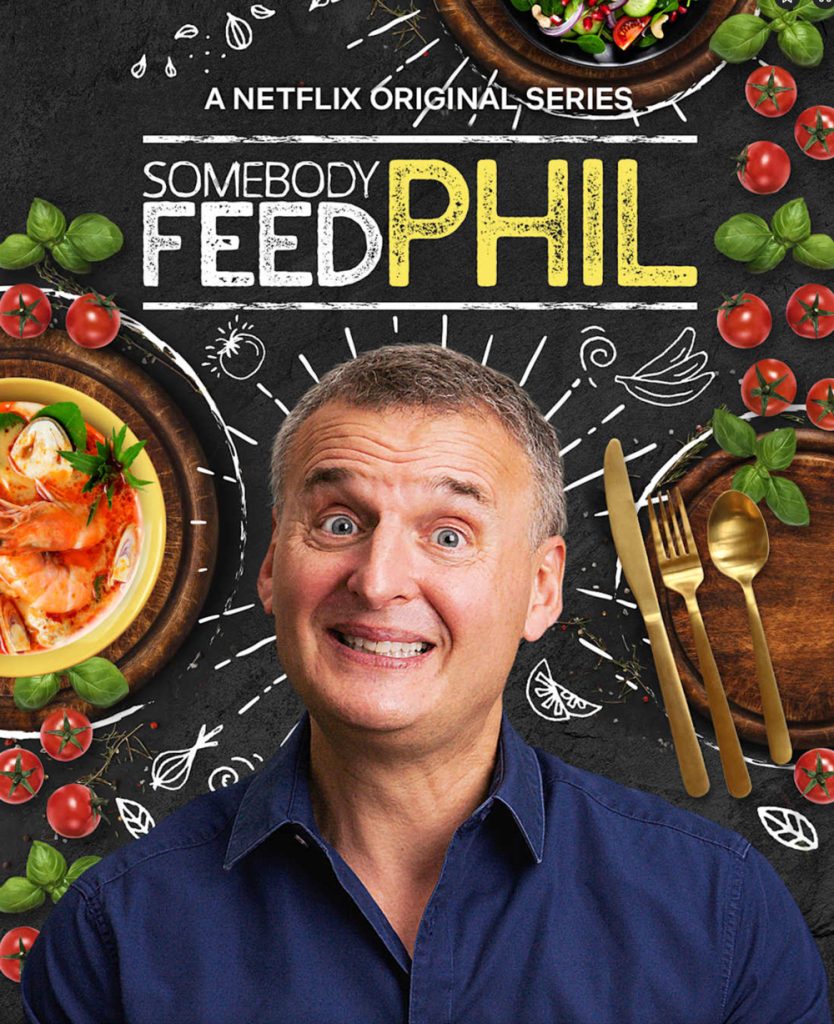 Phil Rosenthal’s Netflix phenomenon “Somebody Feed Phil” has become more than just a travel food show—it’s a powerful testament to humanity’s shared bonds that transcend political divisions. Through eight seasons of culinary adventures across the globe, the series demonstrates a profound truth: while governments may clash and borders may divide, people everywhere are united by the simple, universal act of sharing a meal. Rosenthal’s infectious enthusiasm and genuine curiosity reveal that the barriers between nations exist primarily at the political level, not among ordinary citizens who welcome strangers to their tables with open arms.
Phil Rosenthal’s Netflix phenomenon “Somebody Feed Phil” has become more than just a travel food show—it’s a powerful testament to humanity’s shared bonds that transcend political divisions. Through eight seasons of culinary adventures across the globe, the series demonstrates a profound truth: while governments may clash and borders may divide, people everywhere are united by the simple, universal act of sharing a meal. Rosenthal’s infectious enthusiasm and genuine curiosity reveal that the barriers between nations exist primarily at the political level, not among ordinary citizens who welcome strangers to their tables with open arms.
The Unlikely Food Ambassador
Philip Rosenthal’s journey from sitcom creator to global food ambassador represents one of television’s most unexpected career pivots. Born on January 27, 1960, in Queens, New York, to German immigrant parents who were Holocaust survivors, Rosenthal first gained recognition as the creator, writer, and executive producer of the hit CBS sitcom “Everybody Loves Raymond”. The show, which ran from 1996 to 2005, earned over 70 Emmy nominations and won 15 awards, including two for Best Comedy Series.
After “Raymond” ended, Rosenthal spent nearly a decade trying to convince networks to let him host a travel food show. His pitch was simple yet compelling: “I’m exactly like Anthony Bourdain, if he was afraid of everything”. This self-deprecating humor and everyman appeal would become the cornerstone of his television persona. Where Bourdain was fearless and often cynical, Rosenthal presents himself as an enthusiastic tourist who approaches new experiences with childlike wonder and genuine gratitude.
A Global Phenomenon Born from Persistence
 “Somebody Feed Phil” premiered on Netflix in January 2018, but its roots trace back to Rosenthal’s earlier PBS series “I’ll Have What Phil’s Having,” which debuted in 2015. The transition to Netflix proved transformative, with the streaming platform’s global reach allowing Rosenthal to connect with audiences worldwide. The show has since become Netflix’s longest-running unscripted series, with eight seasons and 49 episodes taking viewers to destinations ranging from familiar favorites like New York and Los Angeles to exotic locales like Tbilisi, Manila, and Guatemala.
“Somebody Feed Phil” premiered on Netflix in January 2018, but its roots trace back to Rosenthal’s earlier PBS series “I’ll Have What Phil’s Having,” which debuted in 2015. The transition to Netflix proved transformative, with the streaming platform’s global reach allowing Rosenthal to connect with audiences worldwide. The show has since become Netflix’s longest-running unscripted series, with eight seasons and 49 episodes taking viewers to destinations ranging from familiar favorites like New York and Los Angeles to exotic locales like Tbilisi, Manila, and Guatemala.
The series’ success extends beyond mere longevity. It has garnered critical acclaim, winning the 2022 Critics’ Choice Real TV Award for “Best Travel/Adventure Show” and earning Rosenthal the “Male Star of the Year” award in 2021. The show received Emmy nominations for Outstanding Unstructured Reality Program and Outstanding Original Main Title Theme Music. More importantly, it has achieved a 2022 James Beard Award nomination for “Visual Media—Long Form,” cementing its status as both entertainment and cultural documentation.
Food as the Great Connector
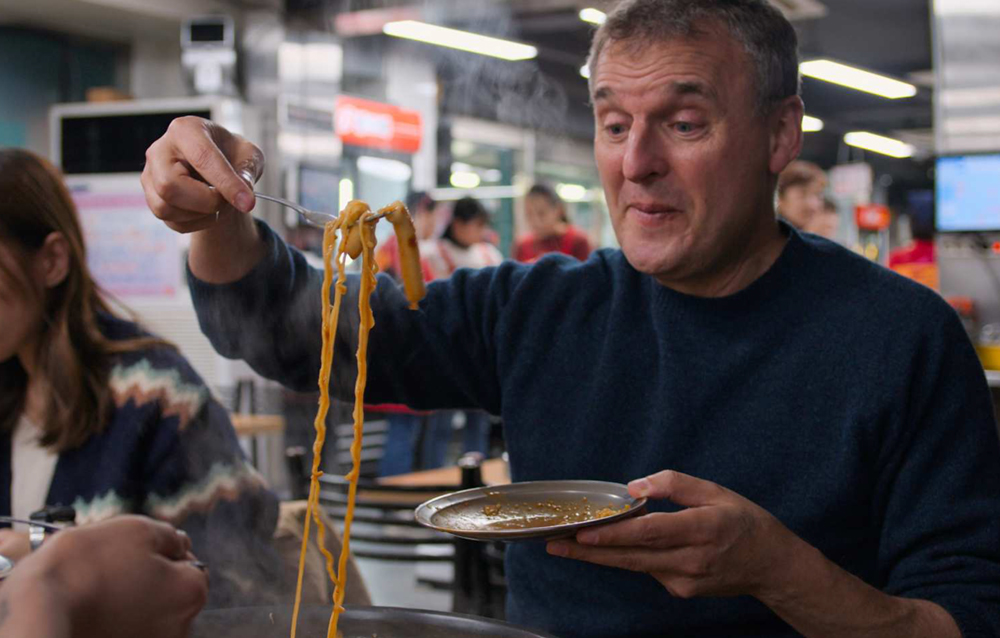 At the heart of “Somebody Feed Phil” lies a deceptively simple philosophy: food is the universal language that connects all humanity. “Food is the great connector because every human being does it: we can’t help it, we’ve got to eat,” Rosenthal explains. This insight forms the foundation of every episode, where sharing a meal becomes the gateway to deeper cultural understanding and genuine human connection.
At the heart of “Somebody Feed Phil” lies a deceptively simple philosophy: food is the universal language that connects all humanity. “Food is the great connector because every human being does it: we can’t help it, we’ve got to eat,” Rosenthal explains. This insight forms the foundation of every episode, where sharing a meal becomes the gateway to deeper cultural understanding and genuine human connection.
The show’s format deliberately emphasizes this connectivity. Each episode features Rosenthal not just sampling local cuisine, but engaging with the people who prepare and share it. From street vendors in Bangkok to Michelin-starred chefs in Paris, from family kitchens in Tel Aviv to bustling markets in Mumbai, the series showcases how food transcends language barriers, cultural differences, and political tensions.
Rosenthal’s approach differs markedly from other travel food shows. Rather than focusing on exotic or challenging foods, he seeks out experiences that demonstrate commonality. “What I always say about food is food is the great connector, and then laughs are the cement,” he notes. This philosophy transforms every meal into an opportunity for bridge-building, where strangers become friends over shared plates and genuine laughter.
Political Division vs. Human Unity
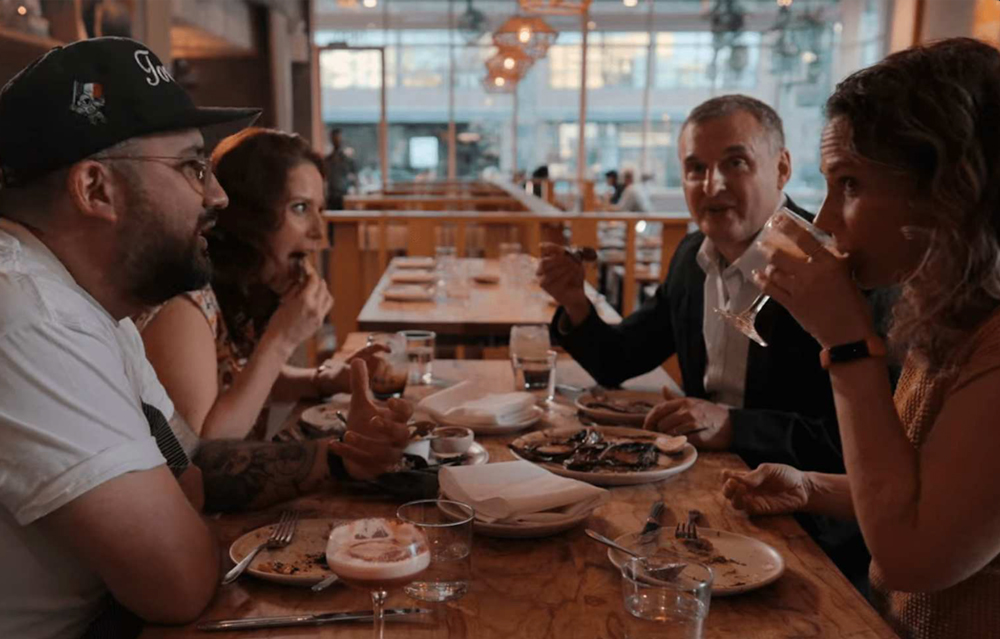 One of the most striking aspects of “Somebody Feed Phil” is how it consistently reveals the disconnect between political rhetoric and human reality. Throughout his travels, Rosenthal has encountered countless examples of people living in harmony despite their governments’ conflicts. In Akko, Israel, he visited a town where Arabs and Jews live side by side, with the mosque next to the synagogue, and residents celebrating each other’s holidays.
One of the most striking aspects of “Somebody Feed Phil” is how it consistently reveals the disconnect between political rhetoric and human reality. Throughout his travels, Rosenthal has encountered countless examples of people living in harmony despite their governments’ conflicts. In Akko, Israel, he visited a town where Arabs and Jews live side by side, with the mosque next to the synagogue, and residents celebrating each other’s holidays.
“This may be politically incorrect to say, but everywhere I go most people around the world are so much better than their governments,” Rosenthal observes. This generalization, born from extensive travel and genuine interaction with locals, challenges the narratives that dominate international relations. While news media focus on conflicts and tensions, Rosenthal’s cameras capture the everyday reality of people who simply want to live in peace, raise their children, and share good food with their neighbors.
The show’s approach to showcasing this human unity reached its pinnacle in the Washington, D.C. episode of Season 7, where Rosenthal achieved something remarkable: he brought together Democratic Transportation Secretary Pete Buttigieg and Republican Congressman Brian Fitzpatrick for a meal. Both men, members of a bipartisan committee, identified the lack of bipartisanship itself as America’s most pressing problem. Their willingness to break bread together demonstrated Rosenthal’s core belief that “we’re not going to solve anything unless we talk to each other”.
The Immigrant Story: Making Places Better
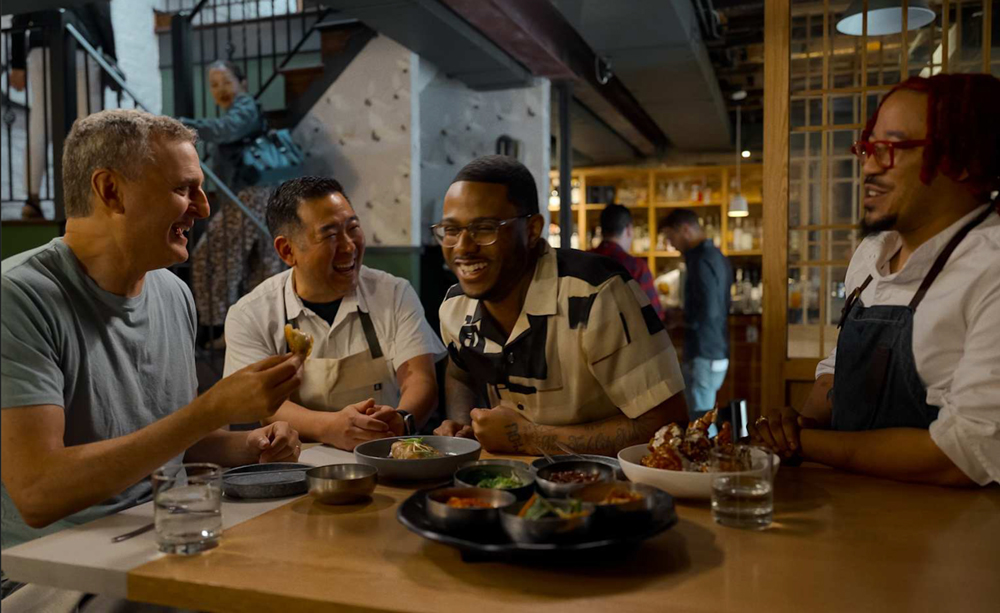 A recurring theme throughout “Somebody Feed Phil” is the positive impact of immigration on local food cultures. Rosenthal consistently finds that immigrants don’t just adapt to their new homes—they enhance them. “Everywhere I go now, immigrants have immigrated to cities around the world. Every single one of them has been made better by the immigrant population,” he explains.
A recurring theme throughout “Somebody Feed Phil” is the positive impact of immigration on local food cultures. Rosenthal consistently finds that immigrants don’t just adapt to their new homes—they enhance them. “Everywhere I go now, immigrants have immigrated to cities around the world. Every single one of them has been made better by the immigrant population,” he explains.
This observation extends beyond mere culinary diversity. In Las Vegas, Rosenthal explores how the city’s famous Strip, built and maintained by immigrant workers, is surrounded by vibrant communities where these workers have established authentic cultural enclaves[20][14]. Off the Strip, visitors can find exceptional Chinese, Indian, Thai, and Korean restaurants that rival or surpass those in their countries of origin.
The show’s celebration of immigrant contributions stands as a powerful counter-narrative to anti-immigration rhetoric. Rosenthal’s experiences consistently demonstrate that immigration strengthens communities, enriches cultures, and creates economic opportunities. “Most immigrants are fantastic and make the town better, more alive. Hardworking business people, great cultures and cuisines,” he notes.
Travel as Political Act
While “Somebody Feed Phil” deliberately avoids overt political messaging, Rosenthal increasingly views travel itself as a form of political activism. “Travel makes the world better and makes your life better,” he frequently states[21]. This isn’t merely about personal enrichment—it’s about breaking down the fear and misunderstanding that fuel political divisions.
The show’s timing has proven particularly relevant. Premiering during an era of rising nationalism and political polarization, it offers a refreshing alternative to the doom-and-gloom narratives that dominate news cycles. “I’m not preaching this. I’m not editing this to show you the world the way I want it to be. I’m only showing you the world the way I find it,” Rosenthal insists. What he consistently finds is a world where most people are “sweet and nice” and eager to welcome strangers into their communities.
The Ripple Effect: Inspiring Global Connection
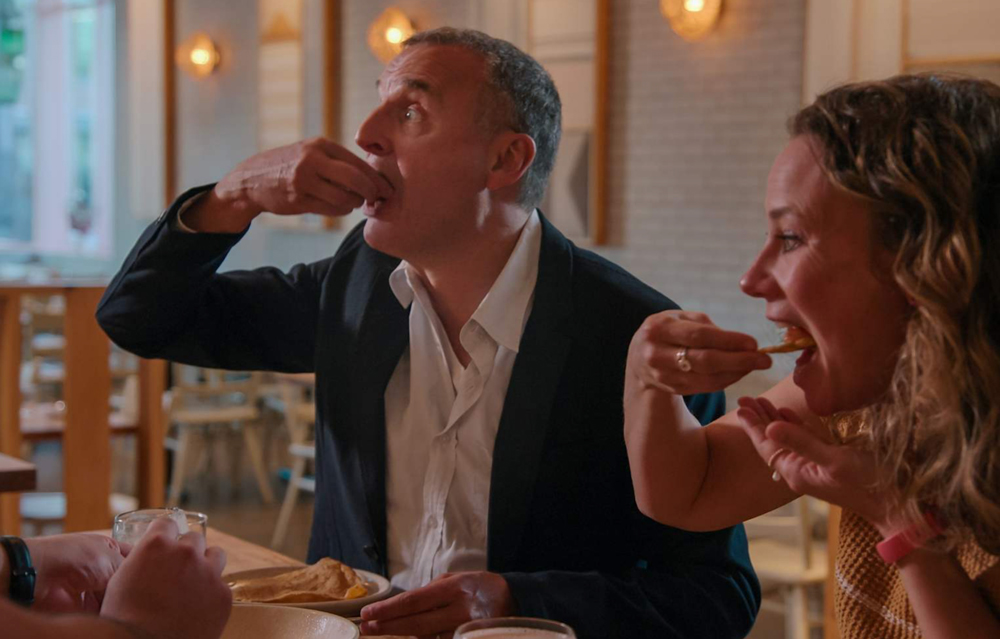 The impact of “Somebody Feed Phil” extends far beyond entertainment. Rosenthal estimates that 90% of his audience has traveled somewhere because of the show. This isn’t just about tourism—it’s about fostering the kind of human connections that make political conflicts seem increasingly absurd. When people experience firsthand the warmth and hospitality of those they’ve been taught to fear or mistrust, it becomes much harder to support policies based on division and exclusion.
The impact of “Somebody Feed Phil” extends far beyond entertainment. Rosenthal estimates that 90% of his audience has traveled somewhere because of the show. This isn’t just about tourism—it’s about fostering the kind of human connections that make political conflicts seem increasingly absurd. When people experience firsthand the warmth and hospitality of those they’ve been taught to fear or mistrust, it becomes much harder to support policies based on division and exclusion.
The show’s global reach—available in 190 countries—amplifies this effect[8]. Viewers around the world don’t just see exotic destinations; they see reflections of their own humanity in people who might otherwise seem foreign or threatening. This soft diplomacy, conducted through the simple act of sharing meals, may be more effective at building international understanding than formal diplomatic efforts.
Beyond Entertainment: A Philosophy for Living
“Somebody Feed Phil” ultimately presents a compelling argument for how we might approach our increasingly connected yet divided world. Rosenthal’s philosophy is elegantly simple: step outside your comfort zone, try something new, and remember that the person across the table from you shares your fundamental humanity.
The show’s format—always ending with a communal meal where everyone Phil met during his visit comes together—serves as a metaphor for the kind of world we could create if we focused on our commonalities rather than our differences. These scenes, filled with laughter, genuine affection, and shared joy, offer a vision of international relations based on human connection rather than political calculation.
A Recipe for Hope
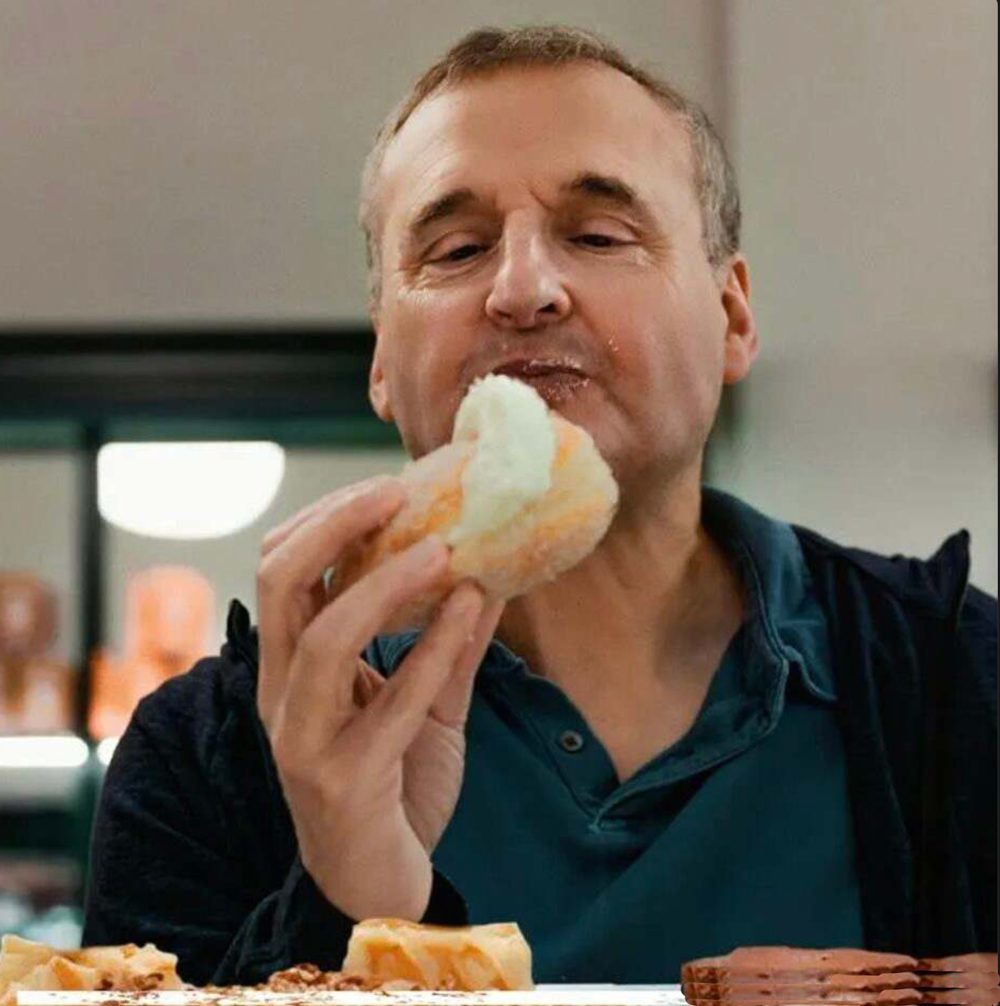 In an era when political leaders seem determined to emphasize what divides us, “Somebody Feed Phil” offers a different recipe—one that celebrates what unites us. Through eight seasons of culinary diplomacy, Phil Rosenthal has demonstrated that the barriers between nations are often artificial constructs that dissolve when people simply sit down together to share a meal.
In an era when political leaders seem determined to emphasize what divides us, “Somebody Feed Phil” offers a different recipe—one that celebrates what unites us. Through eight seasons of culinary diplomacy, Phil Rosenthal has demonstrated that the barriers between nations are often artificial constructs that dissolve when people simply sit down together to share a meal.
The show’s enduring popularity and critical acclaim suggest that audiences worldwide are hungry for this message of unity and connection. In showing us that most people everywhere are “way better than their governments,” Rosenthal provides not just entertainment, but hope. His travels remind us that beneath the surface of political rhetoric lies a fundamental truth: we are all more alike than we are different, and food—that most basic of human needs—can serve as the bridge that brings us together.
As political divisions seem to widen globally, “Somebody Feed Phil” stands as a testament to the power of simple human connection. It proves that sometimes the most profound political act is simply sharing a meal with someone different from yourself, listening to their story, and recognizing the common humanity that transcends all borders. In Rosenthal’s world, every table is a peace table, and every meal is an opportunity to make the world a little bit better, one bite at a time.
Lastly, Phil has a website that talks far more about what he is about. Click thge banner to visit Phil’s site



Be the first to comment